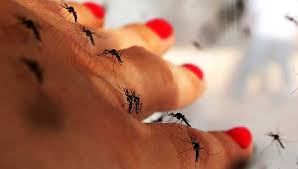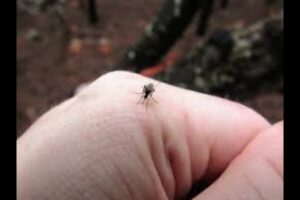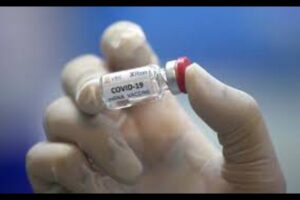Knowing About Malaria’s Contagious Threat: Is It Spreadable?

In this article we tell you about the Malaria’s Contagious Threat. The Fact revealing. Malaria has traditionally been a great public health situation, in particular in tropical and subtropical regions. Thousands of heaps of individuals worldwide are affected by the contamination, so despite improvements in treatment and anticipation, things are nevertheless tight. The query of whether or not intestinal sickness is contagious internally, as certain other infections which are immune-suppressive, is a commonplace false impression. We will observe what jungle fever is, how it spreads, and a way to manipulate its contagiousness in this huge put up.

The cause of the potentially fatal malaria infection is Plasmodium parasites. These parasites are transmitted to humans through the bites of female Anopheles mosquitoes carrying the infection. Intestinal infections can be caused by a small number of Plasmodium species in addition to Plasmodium falciparum, Plasmodium vivax, Plasmodium oval, and Plasmodium malaria.
Plasmodium falciparum is the maximum risky of those, main to severe facet outcomes and likely lethal headaches.
Symptoms of jungle fever generally show up 10 to 15 days after the nibble of an contaminated mosquito and might contain fever, chills, migraines, muscle hurts, and weariness. Serious instances can lead to headaches which include frailty, cerebral intestinal illness, and organ disappointment, which require urgent therapeutic treatment.
The Transmission Cycle of Malaria
Examining the transmission mechanism is crucial to comprehending why jungle fever is not regarded as communicable. Both people and mosquitoes serve as hosts in the Plasmodium life cycle:
Mosquito Nibble:

The transmission cycle starts when a female Anopheles mosquito chomps an contaminated individual, ingesting the Plasmodium parasites along with the blood.
Parasite Improvement: Inside the mosquito, the parasites experience a few formative stages. They grow and metastasize in the skeleton of the worm. Human contamination: When a mosquito bites another person, it enters the parasite’s circulatory system, where it travels to the liver. Here, they develop and multiply.
Cycle in the Liver: After a period of advancement in the liver, the parasites re-enter the circulatory system and contaminate ruddy blood cells. This leads to the clinical side effects of malaria.
Transmission: When another mosquito chomps on an contaminated individual, it takes in the parasites, and the cycle starts again.
Why Jungle Fever is Not Contagious
Malaria isn’t always taken into consideration an infectious disorder within the normal sense, meaning it is not unfold thru casual touch, respiratory beads, or physical interaction. Instep, the contamination calls for a specific vector—the Anopheles mosquito—to transmit the parasite. Here are a few reasons why jungle fever is not infectious in the way infections like the flu or COVID-19 are:Vector Reliance: Jungle fever requires a halfway have (the mosquito) for transmission. Without a mosquito to carry the parasite, the infection cannot spread from individual to individual. This is a key qualification for infections that spread specifically from human to human.
No human-to-human transmission: Jungle fever is not spread through human contact. You cannot capture intestinal sickness by touching or being near an tainted individual. The parasites are not transmitted through real liquids or through the air.Lack of Respiratory Spread: Not at all like respiratory contamination that spread through hacking or sniffling, intestinal sickness does not include any respiratory instrument. The virus is not spread through the air or by accidental exposure.Environment: Intestinal metabolism is influenced by natural variables such as nearby standing water, which provides breeding habitat for mosquitoesThese biological components are pivotal in the spread of the disease.
Unique Cases of Jungle Fever Transmission
While intestinal sickness is not infectious in the conventional experience, there are a few unusual situations below which intestinal sickness transmission can arise:
Blood Transfusions:

Needle Sharing: The sharing of needles or syringes that have been sullied with infected blood can moreover transmit intestinal sickness, regardless of the truth that this isn’t a commonplace mode of transmission.Mother-child transmission: In exceptional circumstances, jungle fever can be transmitted from a contaminated mother to a child during pregnancy or childbirth.This is known as innate malaria.Organ Transplants: There have been reported cases of intestinal sickness transmission through organ transplants from tainted donors.
Prevention and Control Measures
Given that jungle fever is not infectious through human contact, anticipation techniques center on controlling the mosquito population and securing people from mosquito nibbles. Compelling measures include:
Mosquito Control: Decreasing mosquito breeding locales by dispensing with stagnant water and making use of trojan horse sprays can provide assistance in lowering intestinal illness transmission prices. Moreover, the usage of mosquito nets, specially insecticide-handled ones, can secure people from bites.
Preventive Drugs: In levels with tall jungle fever transmission, chemo prophylaxis (preventive remedy) can be applied to make certain vacationers and at-risk populations from contracting the disease.
Rapid Determination and Treatment: Early conclusion and incite treatment with antimalarial drugs are basic in overseeing intestinal sickness cases and avoiding serious results. Artemis-based combination treatments (ACTs) are commonly utilized to treat jungle fever effectively.
Education and Mindfulness: Open instruction approximately intestinal sickness avoidance and the significance of looking for provoke restorative care can offer assistance decrease the rate and affect of the disease.
Future Headings in Intestinal Sickness Research
Ongoing inquiries about points to create modern devices and techniques to combat jungle fever. These include:
Vaccine Improvement:

There is progressing inquiry into creating a successful intestinal sickness antibody. The later presentation of the RTS,S/AS01 antibody speaks to a critical headway, in spite of the fact that its adequacy shifts and it is utilized in conjunction with other preventive measures.
Genetic Approaches: Propels in hereditary investigation are investigating strategies to hereditary alter mosquitoes to decrease their capacity to transmit malaria.
Novel Medications: Analysts are too exploring modern antimalarial drugs and medications to address issues such as medication resistance.
Conclusion
Malaria remains a noteworthy open well being issue, especially in districts where Anopheles mosquitoes flourish. Whereas it is not infectious in the same way as numerous other irresistible maladies, understanding its transmission and the significance of preventive measures are pivotal for controlling and inevitably killing the disease. By focusing on vector control, treatment, and further investigation, we can make strides towards lessening the burden of intestinal sickness and moving forward worldwide well being results.
